Piaggio Vespa- 400(ACMA)
1960 Other Makes Piaggio Vespa- 400(ACMA)
Other Makes Piaggio Vespa- 400(ACMA) 1960 technical specifications | |
|---|---|
| Condition: | New |
| Item location: | Szeged, default, Hungary |
| Make: | Other Makes |
| Model: | Piaggio Vespa- 400(ACMA) |
| Trim: | 2 door |
| Year: | 1960 |
| Mileage: | 5 |
| Color: | Yellow |
| Number of cylinders: | 2 |
| Fuel: | Gasoline |
| Transmission: | Manual |
| Drive type: | RWD |
| Interior color: | Black & White |
| Options: | Leather Seats |
| Vehicle Title: | Rebuilt, Rebuildable & Reconstructed |
| You are interested? | Contact the seller! |
Description |
|---|
Fully restaurated by Hungarian( in EUROPE) oldtimer professionals in Szeged ( 2015). Only original parts.
Reliable, time-tested, regular service by professionals. From a private collector.
We are able to organize safe transport to your country.
For more Information please send a mail to vladigabi1@gmail.com
Final price is negotiable.
TheVespa 400is a rear-enginedmicrocar, produced byACMA (Ateliers de construction de motocycles et d'automobiles)Two different versions were sold, "Lusso" and "Turismo".The 400 was a two seater with room behind the seats to accommodate luggage or two small children on an optional cushion. The front seats were simple tubular metal frames with cloth upholstery on elastic "springs" and between the seats were the handbrake, starter and choke. The gear change was centrally floor mounted. The rear hinged doors were coated on the inside with only a thin plastic lining attached to the metal door panel skin allowing valuable extra internal space. On the early cars the main door windows did not open which attracted criticism, but increased the usable width for the driver and passenger. Instrumentation was very basic with only a speedometer and warning lights for low fuel, main beam, dynamo charging and indicators. The cabriolet fabric roof could be rolled back from the windscreen header rail to the top of the rear engine cover leaving conventional metal sides above the doors. The 12 volt battery was located at the front of the car, behind the dummy front grill, on a shelf that could be slid out. The spare wheel was stowed in a well under the passenger seat.The BritishMotormagazine tested a 400 de luxe saloon in 1959 recording a top speed of 51.8mph (83.4km/h) and acceleration from 0-40mph (64km/h) in 23.0 seconds and a fuel consumption of 55.3 miles per imperial gallon (5.11L/100km; 46.0mpg-US).
The Engine isTwo cylinder, two stroke, air cooled. Bore, stroke: 63mm x 63mm (393 cc). Motor cyclists at the time were used to mixing oil into their fuel, but the manufacturer belatedly realised that this might compromise the 400's standing as a "car", and from the summer of 1958 "two stroke oil" was held in separate reservoir with a semi-automatic dispenser on the right side of the engine bay.[4]
Reliable, time-tested, regular service by professionals. From a private collector.
We are able to organize safe transport to your country.
For more Information please send a mail to vladigabi1@gmail.com
Final price is negotiable.
TheVespa 400is a rear-enginedmicrocar, produced byACMA (Ateliers de construction de motocycles et d'automobiles)Two different versions were sold, "Lusso" and "Turismo".The 400 was a two seater with room behind the seats to accommodate luggage or two small children on an optional cushion. The front seats were simple tubular metal frames with cloth upholstery on elastic "springs" and between the seats were the handbrake, starter and choke. The gear change was centrally floor mounted. The rear hinged doors were coated on the inside with only a thin plastic lining attached to the metal door panel skin allowing valuable extra internal space. On the early cars the main door windows did not open which attracted criticism, but increased the usable width for the driver and passenger. Instrumentation was very basic with only a speedometer and warning lights for low fuel, main beam, dynamo charging and indicators. The cabriolet fabric roof could be rolled back from the windscreen header rail to the top of the rear engine cover leaving conventional metal sides above the doors. The 12 volt battery was located at the front of the car, behind the dummy front grill, on a shelf that could be slid out. The spare wheel was stowed in a well under the passenger seat.The BritishMotormagazine tested a 400 de luxe saloon in 1959 recording a top speed of 51.8mph (83.4km/h) and acceleration from 0-40mph (64km/h) in 23.0 seconds and a fuel consumption of 55.3 miles per imperial gallon (5.11L/100km; 46.0mpg-US).
The Engine isTwo cylinder, two stroke, air cooled. Bore, stroke: 63mm x 63mm (393 cc). Motor cyclists at the time were used to mixing oil into their fuel, but the manufacturer belatedly realised that this might compromise the 400's standing as a "car", and from the summer of 1958 "two stroke oil" was held in separate reservoir with a semi-automatic dispenser on the right side of the engine bay.[4]
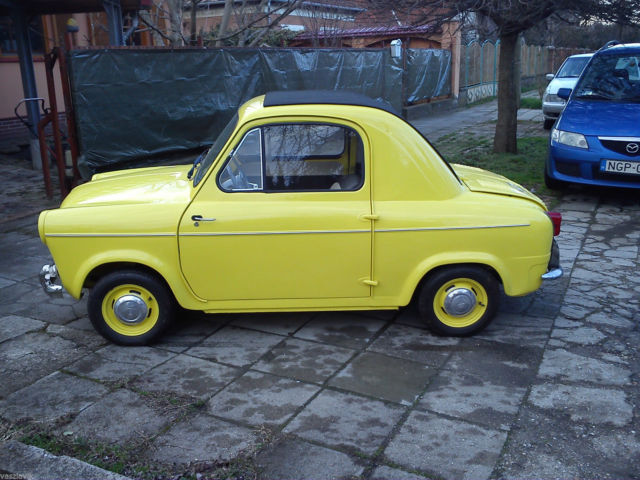
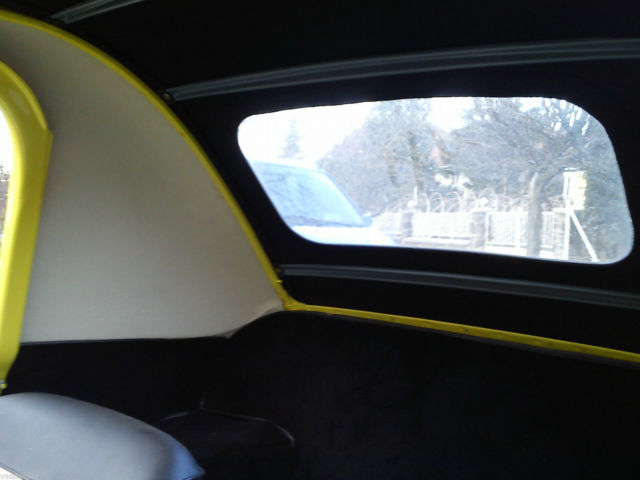
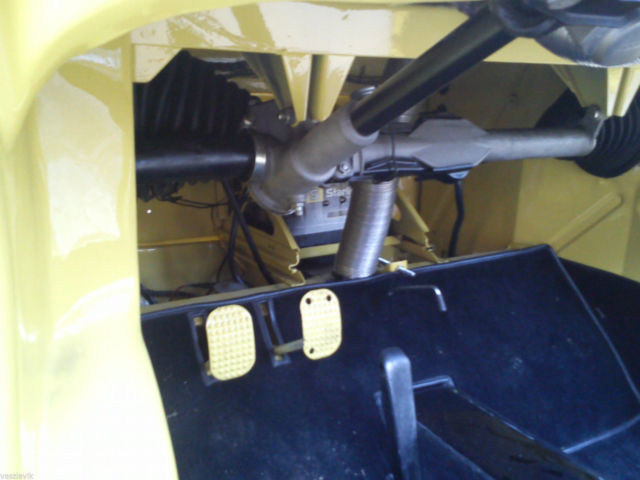
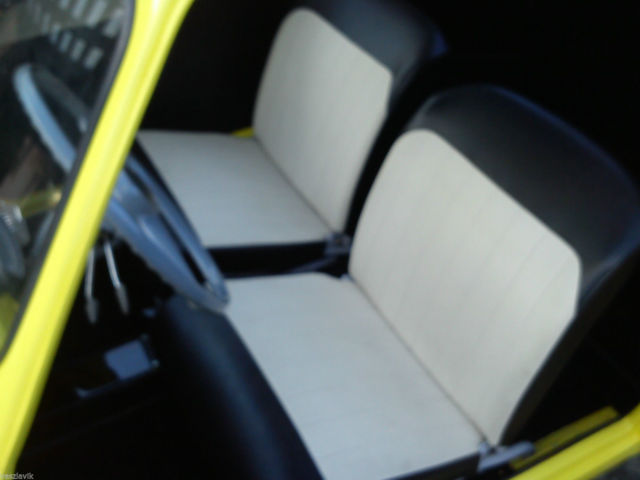
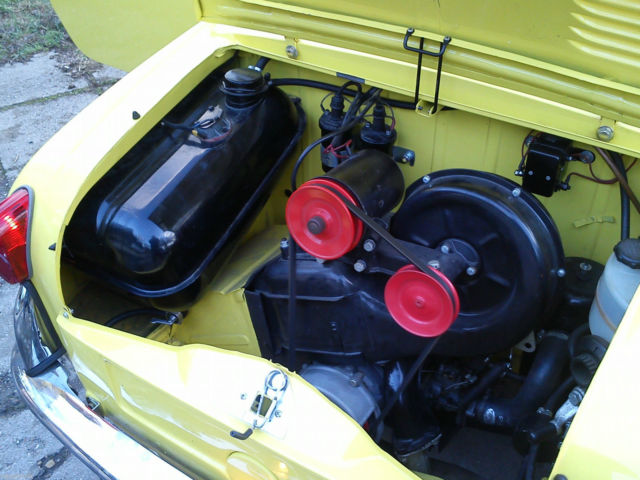
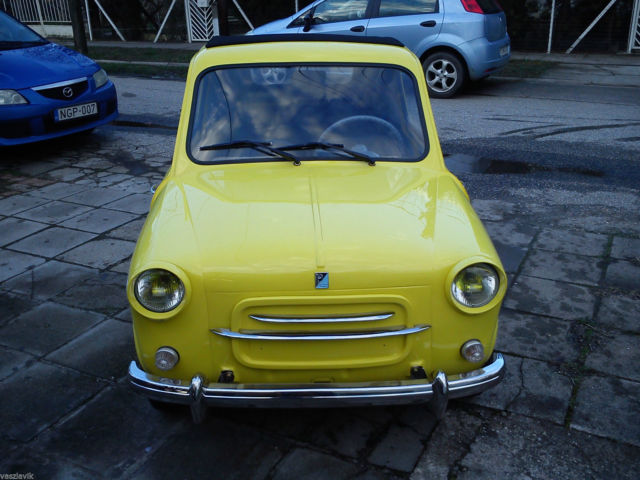
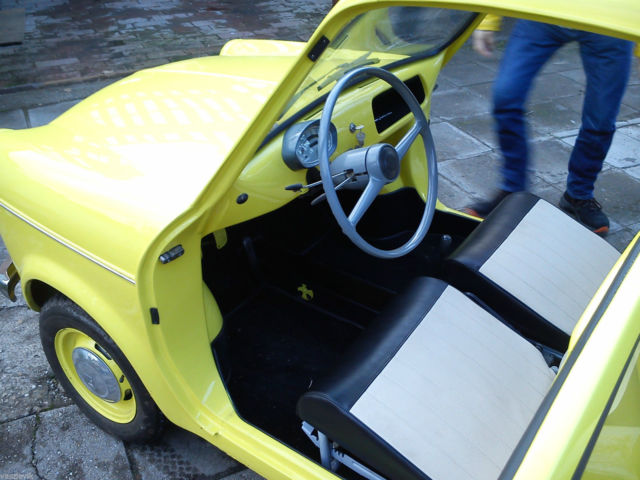
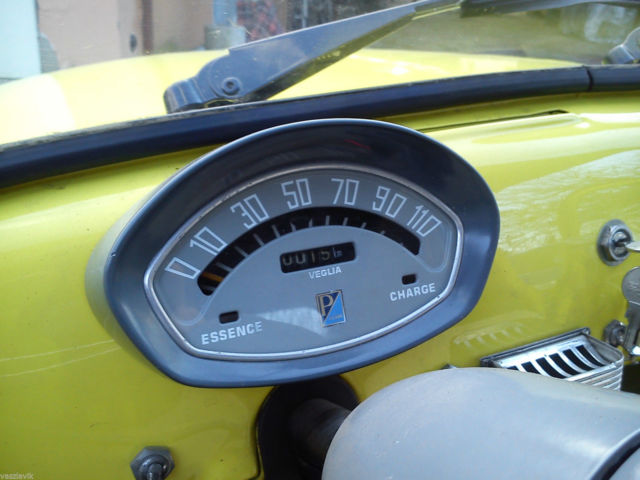
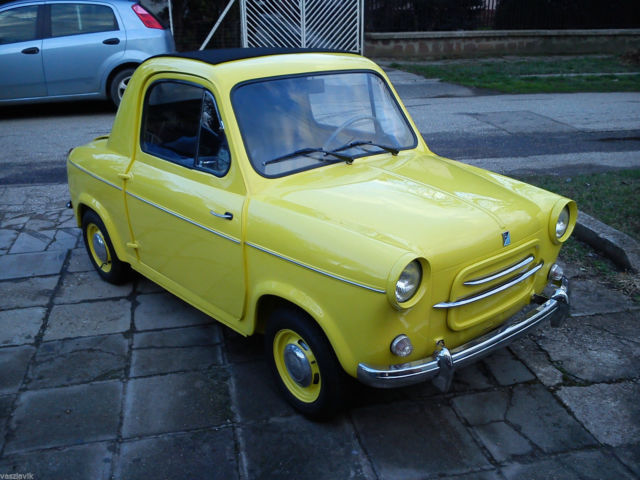
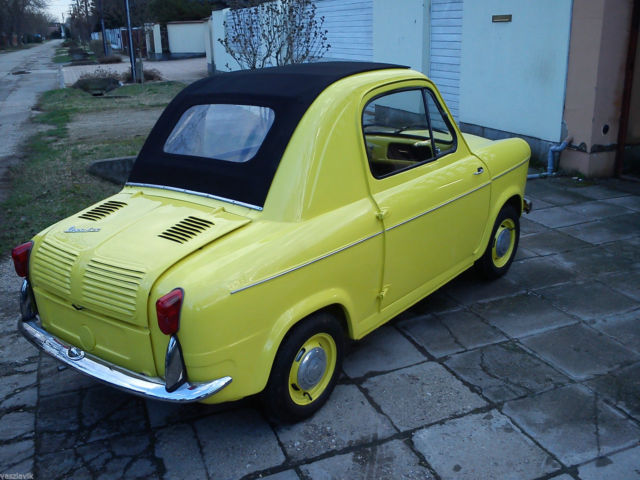
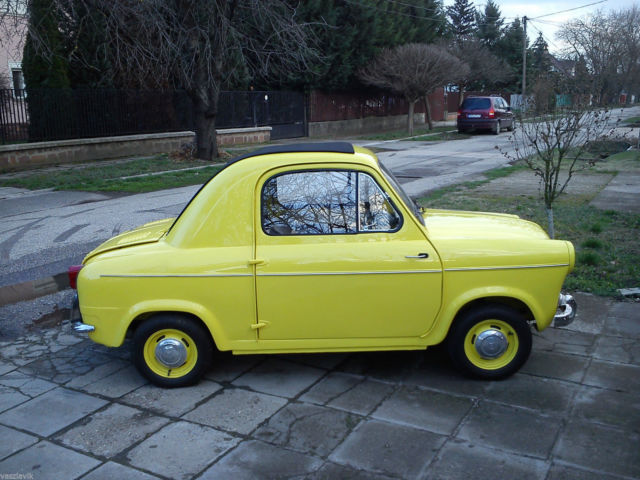
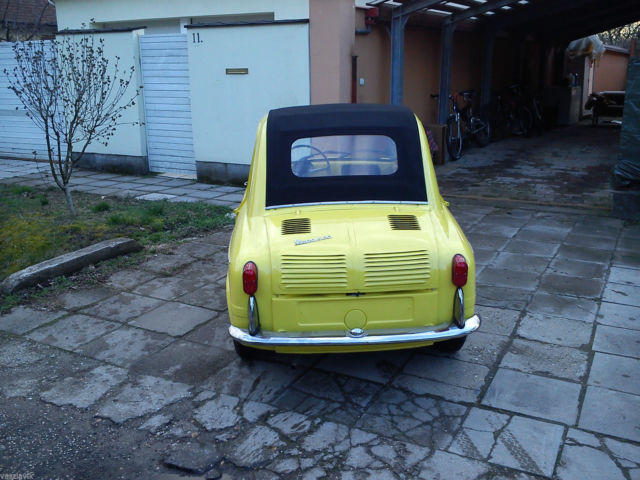
 1961 Vespa Scooter 588 Miles Unspecified Motorcycles & Scooters Unspecified
1961 Vespa Scooter 588 Miles Unspecified Motorcycles & Scooters Unspecified
 Vespa 400
Vespa 400
 1978 Renault 5 other makes,micro-car. Austin, fiat. VW Beetle,Vespa, no reserves
1978 Renault 5 other makes,micro-car. Austin, fiat. VW Beetle,Vespa, no reserves
 RARE 1957 VESPA 400
RARE 1957 VESPA 400